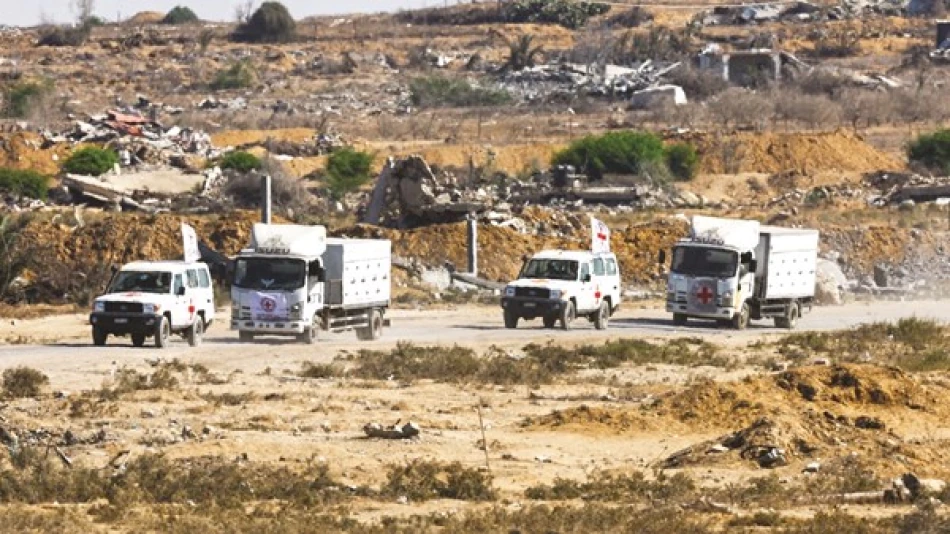
Remains of Detained Individuals Threaten Second Phase of Gaza Agreement
Israel has told the Trump administration that Hamas isn't doing enough to recover bodies of hostages, potentially blocking progress to the next phase of the Gaza ceasefire deal. But Hamas says it has already handed over all the bodies it can access and is waiting for heavy equipment to retrieve the rest from under rubble and collapsed tunnels.
American officials acknowledge the complexity of the situation. "Hamas will return all the bodies, but it will take time. We will continue working on it, but we cannot allow the agreement to collapse," an American official told Axios.
Hamas sources say they've informed mediators that they've delivered all Israeli bodies they could reach from their own custody and other faction holdings. The remaining bodies are believed to be mixed with Palestinian civilian remains under destroyed buildings and in tunnel networks that require specialized equipment to access safely.
The disagreement highlights a key sticking point in the fragile ceasefire. Israel wants all hostage remains returned before moving to phase two of the agreement, which would involve more substantial prisoner releases and reconstruction discussions. Hamas argues it's doing everything possible but needs international technical help.
Egyptian and Turkish technical teams are set to begin operations next week, providing logistics equipment and expertise for the recovery efforts. This coordination involves the American administration and Israeli officials, suggesting all parties recognize the technical challenges involved.
A Hamas source explained that the movement will coordinate with specialized technical teams to identify potential locations where bodies might be recovered, particularly from areas where Israeli hostages and Palestinian civilians died in the same incidents.
Meanwhile, Cairo is preparing for expanded Palestinian meetings to discuss forming a committee to govern Gaza. Hamas and Islamic Jihad delegations are arriving for intensive talks with mediators about post-conflict arrangements.
The UN's humanitarian coordination office sees Trump's Gaza initiative as an important opportunity to end suffering for hundreds of thousands of Gaza residents. Spokesperson Olga Cherevko emphasized that most Gaza residents have been displaced multiple times to areas lacking basic necessities.
The humanitarian situation has reached catastrophic levels after months of severe restrictions on vital aid including food, water, fuel and medical supplies. UN officials say they have proven plans ready to deploy for humanitarian rescue operations once the ceasefire holds, but security and political obstacles must be removed first.
The body recovery issue could determine whether the ceasefire moves beyond its current prisoner-hostage exchange phase. Both sides appear committed to finding a solution, but the technical challenges of retrieving remains from a war zone where entire neighborhoods were destroyed adds another layer of complexity to an already delicate agreement.
Most Viewed News

 Layla Al Mansoori
Layla Al Mansoori






